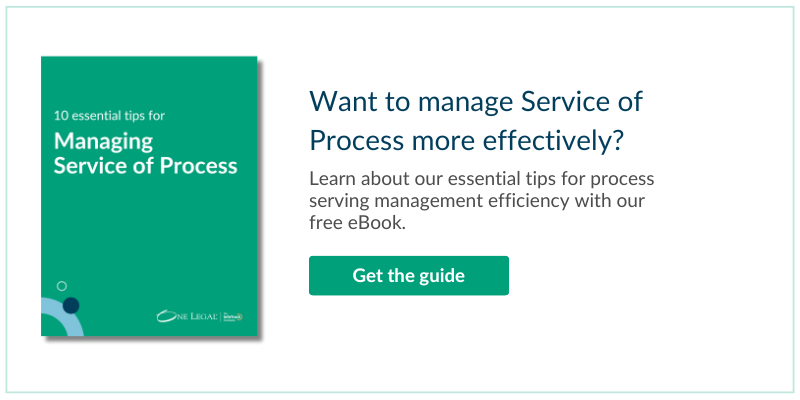Navigating the complexities of serving legal documents is a critical, yet often challenging task.
This is especially so when the individuals being served are either evasive, making deliberate efforts to avoid being served, or have moved without leaving a trace.
Understanding the distinction between these scenarios is crucial: evasion requires strategies tailored to outmaneuver such tactics, while relocation demands investigative efforts to trace the individual’s new location.
Below, we offer a detailed guide on tackling these challenges effectively.
1. Verify residence via the US Postal Service
Starting with the basics, verifying the residency status of an individual through the United States Postal Service (USPS) is a prudent first step. This method is particularly useful for distinguishing between individuals who have moved away from their last known address and those who are present but avoiding service.
By submitting an Address Information Request Form to the USPS, you can access updated records that may confirm the person’s presence or indicate a change of address. This method, while straightforward, ensures your efforts are accurately directed from the outset.
For further information on how to submit a request, visit USPS Address Information Requests Forms.
2. Consider requesting a stakeout
When dealing with evasive targets, a more hands-on approach may be necessary. Stakeouts involve discreetly monitoring a location for several hours where the individual is expected to appear.
This method can be useful if you’re confident of the individual’s whereabouts, but they are being particularly evasive.
It’s typical for legal professionals to opt for stakeouts at locations tied to the individual’s daily routine, such as their residence, workplace, or known frequented spots.
While time-consuming, stakeouts can be remarkably effective against targets who are actively dodging service, providing a direct solution to a challenging scenario.
3. Utilize an instant locate/skip trace Service
When an individual has relocated and their current whereabouts are unknown, leveraging an instant locate or skip trace service becomes invaluable.
Tools like One Legal’s Person Locator compare the provided information against expansive national databases, offering insights into the individual’s possible new location.
This process not only streamlines the search for relocated individuals but also uncovers related data that might assist in piecing together the target’s location — such as names of relatives and associates, AKAs, phone numbers, and email addresses.
Whereas steps like this would previously require hiring a private investigator, legal professionals can now conduct a near-instant search, potentially saving time and effort.
Explore the capabilities of One Legal’s Person Locator: One Legal Person Locator.
4. Engage a licensed private investigator
For particularly elusive cases, enlisting the expertise of a licensed private investigator can be a game-changer. PIs excel in unraveling complex scenarios, utilizing a blend of field surveillance, digital investigations, and networked information sources to locate individuals.
Their work often extends beyond mere location services, providing comprehensive background checks, asset searches, and even gathering pivotal information for legal cases.
The role of a private investigator is instrumental in scenarios where the target has gone to great lengths to remain hidden or when the stakes of the legal process are particularly high.
Connect with seasoned investigators at PINow.
5. Leverage social media and online resources
In this digital age, the online presence of individuals can offer critical clues to their whereabouts. Social media platforms, especially, are increasingly becoming tools in the legal professional’s arsenal for tracking down targets.
This method requires a balanced approach; while the wealth of information available online is invaluable, it is critical to navigate these searches within the bounds of privacy laws and ethics.
Additionally, the information obtained through these channels must be corroborated to ensure its reliability and relevance to the case at hand.
6. Court intervention and alternative service methods
When all conventional and innovative methods have been exhausted without success, seeking court intervention for alternative service methods might be the final step.
This approach involves petitioning the court to approve non-standard methods of service, such as service by publication, service by email, or even through social media platforms (note that alternative service depends on the jurisdiction’s acceptance of such methods).
The key to this approach is demonstrating exhaustive efforts to locate and serve the individual using traditional methods, underscoring the necessity for alternative solutions to advance the case.
Conclusion
Successful service on elusive or relocated individuals demands a blend of traditional diligence and modern tools.
The strategies above, from verifying addresses with the USPS to leveraging digital tools and seeking court intervention for alternative methods, provide a framework for those facing these challenges.
The key to overcoming service obstacles lies in adaptability, legal and ethical adherence, and a strategic approach to each unique case.







